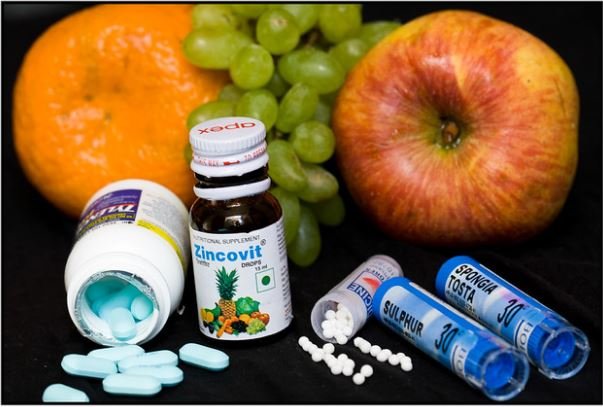
Every parent wants their child to grow up healthy and strong, and nutrition plays a huge role in that growth. However, with busy routines and selective eaters, it can sometimes be hard to get kids all the nutrients they need through food alone. This guide explores essential vitamins and supplements for kids, explaining what they do and how to add them to your child’s diet.
Why Are Vitamins and Supplements Essential for Kids?
In a perfect world, children would get everything they need from a balanced diet full of fruits, vegetables, grains, and proteins. But let’s face it—not every child’s diet is perfect! Vitamins and supplements help fill nutritional gaps, supporting areas like bone growth, brain development, and immune health.
Key Vitamins for Growing Kids
- Vitamin A
Role: Supports vision, immune strength, and skin health
Food Sources: Carrots, sweet potatoes, spinach, eggs
Why It’s Important: Vitamin A promotes healthy vision, especially in low light, and strengthens the immune system to fight off infections. - Vitamin C
Role: Boosts immunity, helps with skin and healing
Food Sources: Oranges, strawberries, bell peppers, broccoli
Why It’s Important: Known for immune support, Vitamin C helps the body recover from illness and boosts collagen for skin and tissue repair. - Vitamin D
Role: Supports strong bones and immunity
Food Sources: Sunlight, fortified milk, fish oils, mushrooms
Why It’s Important: Vital for calcium absorption, Vitamin D strengthens bones and teeth. Low levels can lead to weakened bones and other health issues. - Vitamin E
Role: Protects cells, supports vision and immunity
Food Sources: Nuts, seeds, green leafy vegetables, sunflower oil
Why It’s Important: Acting as an antioxidant, Vitamin E protects cells from damage and boosts a healthy immune system. - Vitamin K
Role: Essential for blood clotting and bone health
Food Sources: Leafy greens, broccoli, fish
Why It’s Important: Vitamin K is vital for normal blood clotting and helps with bone metabolism, building strong bones as kids grow. - B Vitamins (B12, B6, B3, etc.)
Role: Converts food to energy, supports brain health
Food Sources: Whole grains, meat, dairy, bananas, eggs
Why They’re Important: The B-complex vitamins help with energy, brain health, and red blood cell production, all critical for growth and learning. - Calcium
Role: Builds strong bones and teeth
Food Sources: Dairy products, leafy greens, fortified plant milks
Why It’s Important: Calcium builds strong bones and teeth. Making sure kids get enough calcium sets them up for lifelong bone health. - Iron
Role: Supports blood health, energy, and brain development
Food Sources: Red meat, spinach, beans, fortified cereals
Why It’s Important: Iron helps transport oxygen in the blood, which is vital for energy and cognitive development. Iron deficiency can cause fatigue and poor concentration.
Choosing the Right Supplements
Supplements come in various forms, like chewable tablets, gummies, and liquids. Here are some tips on selecting the best options:
- Age-Specific Formulas: Choose vitamins formulated for your child’s age to match their nutritional needs.
- Natural vs. Synthetic: Many parents prefer natural, food-based vitamins for their purity and quality. Consult with a pediatrician if you’re unsure.
- Avoiding Over-Supplementation: Avoid giving too many vitamins, as excess can be harmful. Always check the recommended daily amounts.
Safety Tips for Giving Vitamins and Supplements
- Consult a Doctor: Always talk to your child’s pediatrician before starting a new supplement to ensure it’s right for their needs.
- Stick to Recommended Doses: Follow dosage instructions carefully. For example, too much Vitamin A or iron can be toxic.
- Pair with Food When Needed: Fat-soluble vitamins like A, D, E, and K are best absorbed with a meal that includes healthy fats.
Boosting Nutrients Through Food
While supplements help, food should be the main source of nutrients. Here are some ways to add nutrients naturally:
- Sneak Veggies into Meals: Try blending spinach into smoothies or adding shredded carrots to sauces.
- Opt for Fortified Foods: Choose fortified cereals, milk, and bread for added vitamins like D and iron.
- Encourage Variety: Aim for colorful fruits and vegetables on their plates, which provide a range of nutrients.
Common Questions on Vitamins and Supplements for Kids
Q: Does every child need a multivitamin?
A: Not necessarily. A child with a balanced diet may not need additional vitamins. Picky eaters or those with dietary restrictions may benefit more.
Q: How do I know if my child is missing nutrients?
A: Signs of nutrient deficiencies include frequent colds, low energy, poor concentration, and brittle hair and nails. Consult your pediatrician if you have concerns.
Q: Are gummy vitamins effective?
A: Gummies can be effective but often contain added sugars. Choose options with minimal additives and don’t use them as a substitute for whole foods.
Final Thoughts on Kids’ Vitamins and Supplements
Good nutrition is a foundation for a healthy life. While a balanced diet should cover most of your child’s needs, supplements can be a valuable support, especially for picky eaters or those with specific nutrient gaps. By focusing on both food-based nutrition and safe supplementation, you’re setting your child up for growth, health, and energy to thrive!
